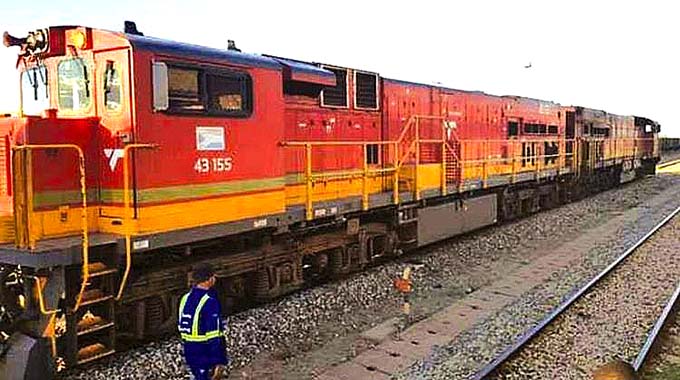State firms pose fiscal risks: Treasury
The National Railways of Zimbabwe is among State owned entities that are technically insolvent.
Rising debts at State owned enterprises pose serious fiscal risks for the Government, Finance and Economic Development Minister Professor Mthuli Ncube said.
Presenting the 2022 Budget yesterday, Professor Ncube said under-performance of the SOEs, alongside inflationary pressures, the Covid-19 pandemic, exchange rate volatility, extreme weather conditions, retreat in international commodity prices and higher than anticipated international oil prices could threaten growth next year.
“State-owned enterprises represent significant fiscal risks, with some in financial distress, mounting losses, negative equity and failing infrastructure,” said Minister Ncube.
“Long-term viability challenges are evident through deteriorating financial ratios of profitability, liquidity and solvency.”
Given the risks that may arise from the SOEs, the Government has embarked on reforms aimed at improving their operational efficiencies, he said. Some have been departmentalised in line ministries while some are in different stages of being privatised and some are being commercialised.
Minister Ncube cited ZESA, the National Railway of Zimbabwe, TelOne and Zimbabwe National Road Authority among State-owned entities that are technically insolvent.
Minister Ncube said contingent liabilities were also arising from poor performance of some SOEs, including local authorities, which are adding pressure on the fiscus and its sustainability in the medium to long term.
“Non-collection of revenue by the utilities and local authorities, for example, while undermining their financial status and service delivery to residents, creates a burden on the budget to provide resources for rehabilitation and maintenance of municipal infrastructure,” he added.
Three years after embarking on reforms of SOEs and parastatals to enhance their performance and reduce their reliance on the fiscus, the country has largely missed its targets.
The re-engineering of the parastatal sector, which used to contribute 40 percent to the gross domestic products (GDP), is also meant to enhance service delivery and improve accountability of the State entities.
In almost every sector where they operate, SOEs face a number of challenges including lack of capital, low productivity and unsustainable debt.
Services have deteriorated substantially and even the welfare of their own employees is often in jeopardy. Most of these entities are technically insolvent, presenting an actual or potential drain on the fiscus.
In the 2022 budget, Minister Ncube set aside $10 billion meant to recapitalise some SOEs.
Prof Ncube has been pushing for centralisation of SOEs, but the process has been seemingly slow.
In the 2020 and 2021 budgets, he said Cabinet had resolved to move away from a system where the shareholder function of SOEs was spread across line ministries and establish a single entity that would have an overall oversight of the state companies.
The move, applauded by some analysts as key towards reforming SOEs, particularly the utilities, will now be implemented over the next three years, said the minister.
The current ownership model has faced a number of challenges including inconsistencies in governance practices, interference by ministers, delays and or reversals of Government-approved state enterprise and parastatal reforms due to interest ties within some line ministries, and generally weak and passive oversight functions, said the Treasury. Under the centralised ownership model, a single Government institution would take on the role of shareholder in all state-controlled companies.
He said the new ownership model would be one of the key reforms of the State-owned companies.-The Herald









